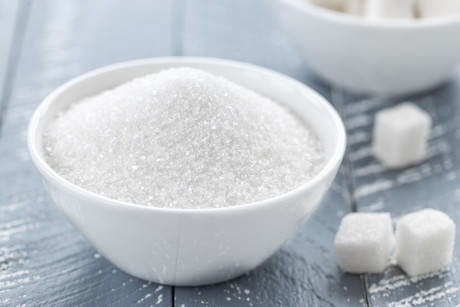Genetically engineered bacteria turn sugar into hydrogen

Macquarie University scientists are engineering bacteria that turn sugar into hydrogen — a breakthrough in renewable energy research that has received a $1.1 million grant from the Australian Renewable Energy Agency (ARENA).
While 95% of the hydrogen used worldwide currently is produced from fossil fuels, increasingly people are looking at how to produce hydrogen from renewables. For example, Dr Louise Brown, co-leader of the new project, noted that a lot of recent research efforts are focused on using electrolysis to produce hydrogen by splitting water molecules into oxygen and hydrogen, achieved by using electricity generated from solar and wind.
“Other people are taking a biological route and tweaking photosynthesis in algae to produce hydrogen,” she said.
“We think we can use genetically engineered bacteria — in our case, E. coli — which will be able to eat glucose produced from renewable sources likes sugar cane and cereals. We’ll also be looking at other low-cost carbohydrate feedstocks as well.”
Professor Robert Willows, another project co-leader, explained, “The aim of our project is to design a system that produces hydrogen relatively rapidly and at yields that are commercially viable. The bacterial approach has many advantages over hydrogen from algae, including that it doesn’t need large open ponds.”
“Even in the lab we can produce enough hydrogen in a day, from a few spoonfuls of sugar, to produce enough energy to charge your mobile phone for up to two weeks,” added Dr Brown.
The researchers have teamed up with BOC Australia and Bioplatforms Australia on the project, with the three-year ARENA grant to be matched by an additional $1.7 million in further funding and in-kind support.
“BOC is committed to supporting Australian research and development into the production and use of cleaner gaseous fuels for mobility and energy,” said Alex Dronoff, BOC General Manager Hydrogen and LNG. “Renewable hydrogen is a fuel of the future, and we are proud to share our global expertise with researchers from Macquarie University as they enter this next phase of technology development.”
“The team will be able to use our research infrastructure to better understand the changes they’re making to the genes, proteins and metabolism of the bacteria they’re engineering,” added Andrew Gilbert, General Manager of Bioplatforms Australia. “We are delighted to support this valuable project that showcases clever science to innovatively produce hydrogen.”
The study is one of 16 hydrogen R&D projects to receive ARENA funding, with the agency awarding nine organisations a total of $22.1 million as part of a special funding round. Other projects are being carried out by the Australian National University, Monash University, Queensland University of Technology, RMIT University, The University of Melbourne, UNSW, The University of Western Australia and CSIRO.
Biofortified rice to combat vitamin B1 deficiency
New research has focused on improving vitamin B1 content in the endosperm of rice — the...
Higher levels of CO2 increase lifespan of airborne SARS-CoV-2
Carbon dioxide is a major factor in prolonging the life of SARS-CoV-2 variants present in tiny...
Energy-friendly ammonia production for fertilisers and fuel
To help reduce ammonia's energy footprint, researchers set out to create a reaction that can...







